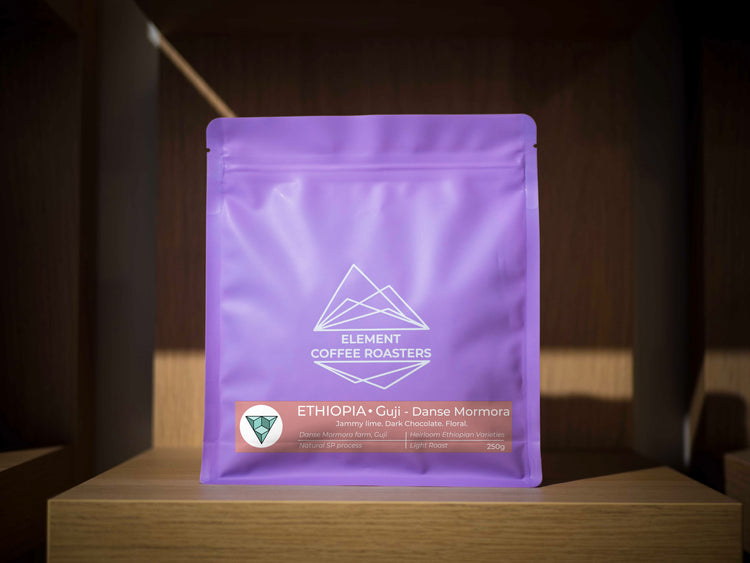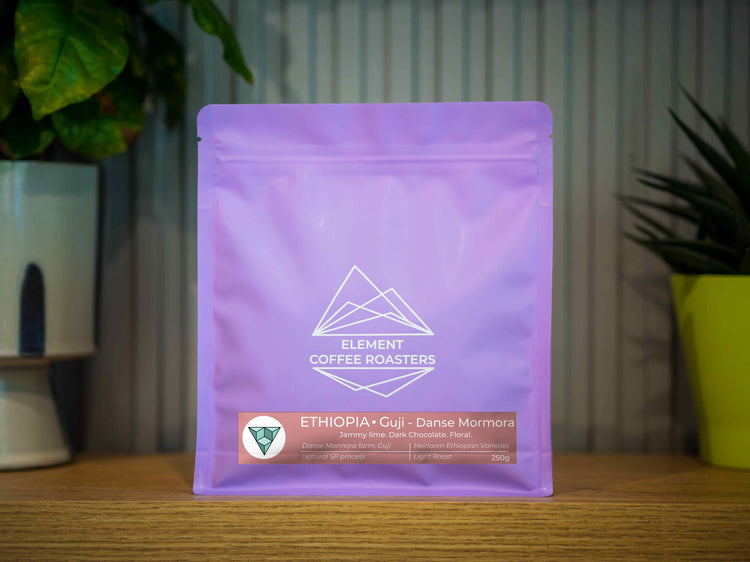More about Ethiopia Yirgacheffe - Danse Mormora
Description
More
Less
The Danse Mormora farm is situated in the Guji region of Ethiopia, that is known for the production of large number of coffee with excellent quality among the high-quality coffees in Ethiopia.
Coffees in Ethiopia are typically grown on very small plots of land by farmers who also grow other crops. This is the reason the Dembi coffee is a result of the efforts of many small farmers, who use traditional growing and processing methods. This approach not only preserves the unique tasting profile of the coffee, but also helps the sustainable development of the local community.
Country and Region Heirloom Ethiopian Varieties
More
Less
Process: Natural (Special Prep)
More
Less
Variety: Heirloom Ethiopian Varieties
More
Less
Description
The Danse Mormora farm is situated in the Guji region of Ethiopia, that is known for the production of large number of coffee with excellent quality among the high-quality coffees in Ethiopia.
Coffees in Ethiopia are typically grown on very small plots of land by farmers who also grow other crops. This is the reason the Dembi coffee is a result of the efforts of many small farmers, who use traditional growing and processing methods. This approach not only preserves the unique tasting profile of the coffee, but also helps the sustainable development of the local community.
Country and Region Heirloom Ethiopian Varieties
Process: Natural (Special Prep)
Variety: Heirloom Ethiopian Varieties
You May Also Like
More about us on social media















